EMORY MAGAZINE | WINTER 2023
Embracing Our Humanities
Why Emory is doubling down on the
study of what makes life worth living
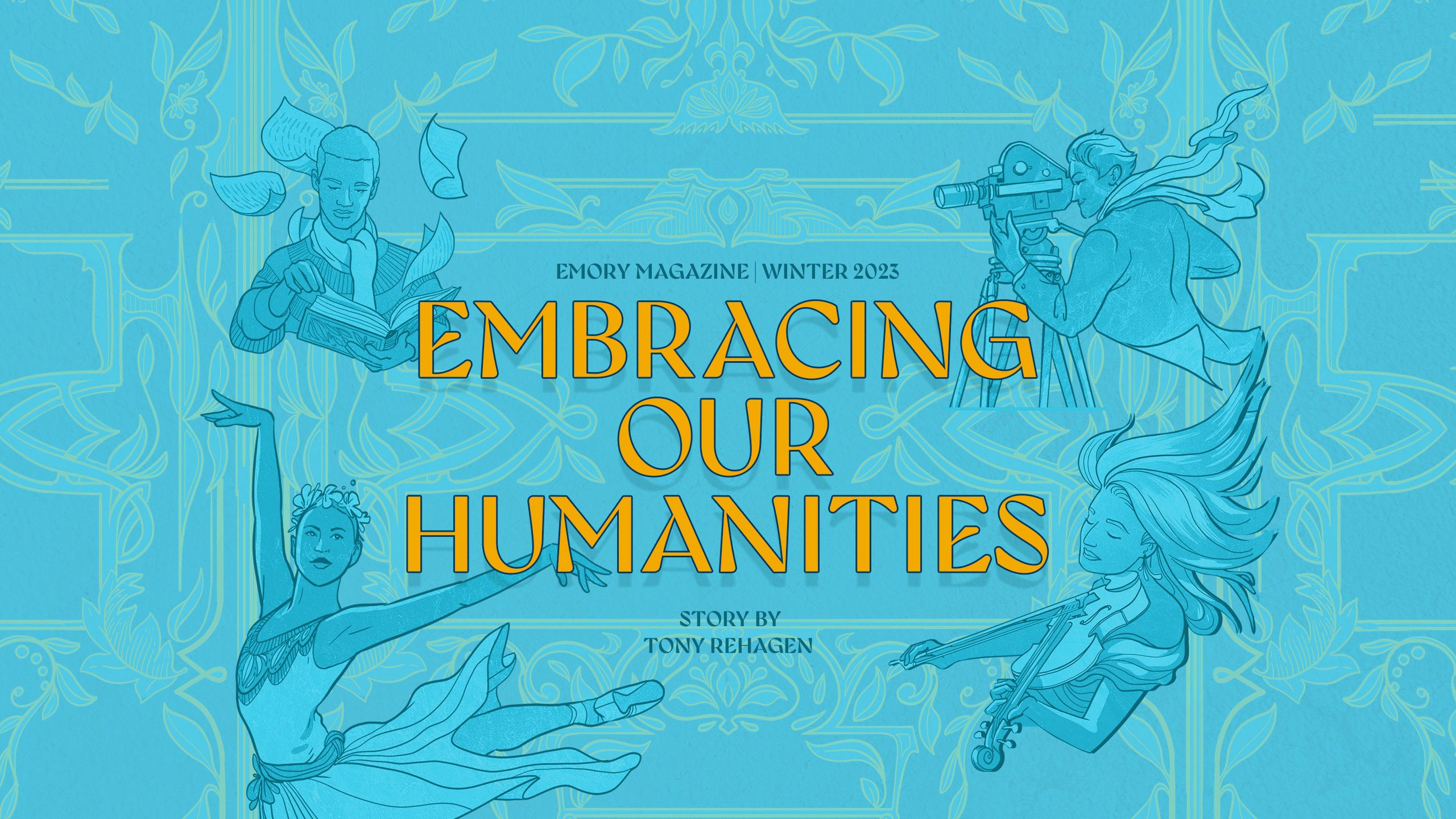

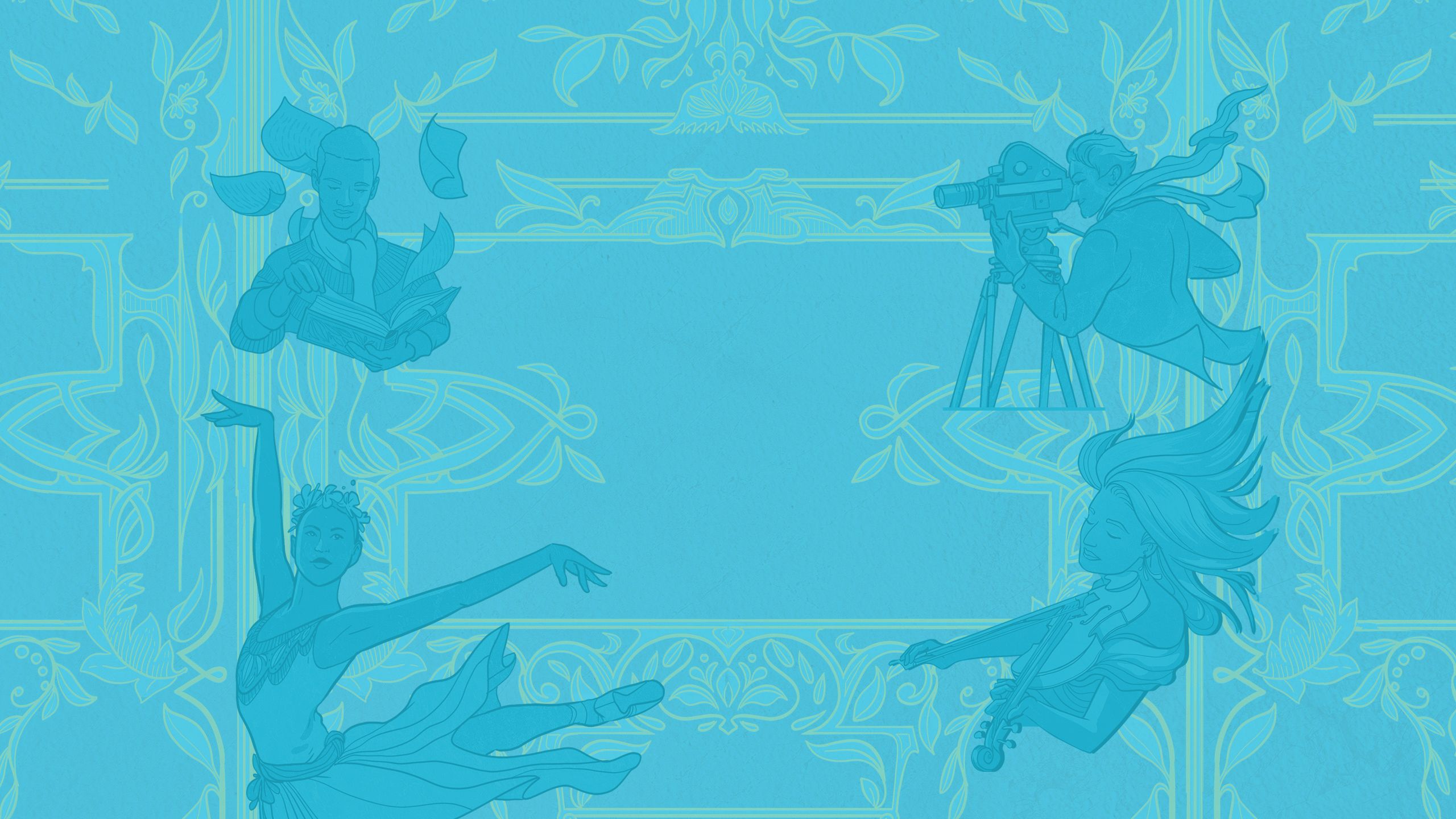
Why Emory is doubling down
on the study of
what makes life worth living.
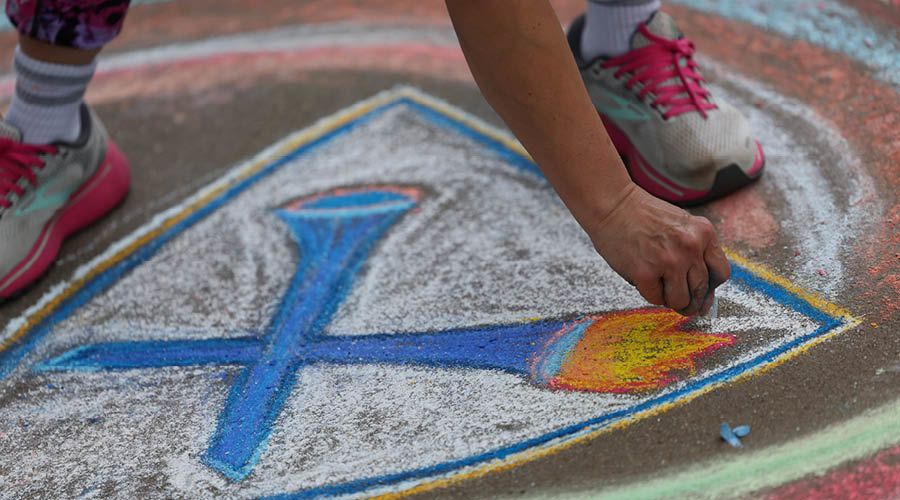
When she enrolled at Emory as an undergrad in the fall of 2021, Nadia Elhadi felt like she was at a crossroads.
In high school, Elhadi gravitated toward biology, specifically medicine. She envisioned a career as a physician, maybe even a surgeon. But she also harbored a longstanding passion for art. Some of her earliest memories were of walking through art museums, examining the paintings and sculptures, and even sitting in front of her own easel in art classes, learning to mimic her heroes and express her own vision.
So now, standing at the precipice of her professional life, Elhadi seemingly had a choice to make. Conventional wisdom would point her toward the security and stability of the science-based medical field; after all, pundits have been heralding the demise of the humanities — art, music, history, literature, philosophy and more — as viable fields of study for more than half a century. But Elhadi felt there had to be some value in knowing more than just how to diagnose and treat disease. Shouldn’t a doctor also understand her patients’ behavior, how they perceive the world and how that perception shapes the way they think, act and communicate?
Fortunately for Elhadi and students like her, Emory didn’t ask her to choose one path. Instead, the school encouraged her to take both. She is now majoring in pre-med neuroscience and behavioral biology with a minor in art history. “Essentially, it’s a way for me to formally learn about my two schools of interest,” Elhadi says. “I think having an overlap between my two fields helps with exercising different ways of thinking and learning.”
This sort of interdisciplinary thinking is at the heart of Emory’s new Initiative for Arts and Humanistic Inquiry, a major investment in faculty and creative programming geared to bolster the university’s considerable expertise in the humanities.

At a time of rapid technological, societal and environmental change, scholars and artists who can shine a light on the human experience will help us face challenges and find new ways to grow and flourish.
Over the next three to four years, Emory will invest in hiring up to 30 new faculty members across five participating schools — Emory College of Arts and Sciences, Oxford College, Candler School of Theology, Emory School of Law and Goizueta Business School — to join the leading liberal arts teachers, scholars and creators already on its campuses.
In addition, the university is underwriting expanded creative programming, both in and outside the classroom. Any full-time faculty members with innovative ideas can request funding to enhance scholarship and community building in the arts and humanities, including special workshops, expert panels, guest speakers, performances and more.
Both efforts will work in concert with expanded programming from the Bill and Carol Fox Center for Humanistic Inquiry to boost scholarship of the human experience, foster collaboration and integrate holistic liberal arts education throughout the university.
“In an era when some are divesting in the humanities, Emory has decided to double down,” says Ravi V. Bellamkonda, provost and executive vice president for academic affairs. “We think humanistic inquiry is particularly essential at this critical juncture in our shared history. At a time of rapid technological, societal and environmental change, scholars and artists who can shine a light on the human experience will help us face challenges and find new ways to grow and flourish.”
In other words, Bellamkonda and Emory are betting that the influence of an education steeped in the humanities and arts can produce more than just well-rounded students. They believe that the skills and perspectives will be crucial in preserving our democracy and saving our planet. Further, they believe that a better appreciation of art, beauty, language, philosophy — the very things that make us human — will engender a world worth saving.


BUCKING TRENDS, DEBUNKING MYTHS
For decades, it seems, some educational and civic leaders have been doing more than just overlooking the humanities — they’ve been actively trying to eliminate them.
Federal, state and local governments have slashed funding for the arts and humanities, forcing universities to shutter programs from art history to gender studies to German. K-12 schools have silenced band and choir and dropped the curtain on drama programs. Censors and parent organizations have banned books, films and artworks from school libraries and classrooms. In an increasingly polarized climate, the application of history and philosophy to issues like social justice and human rights has become a political act.
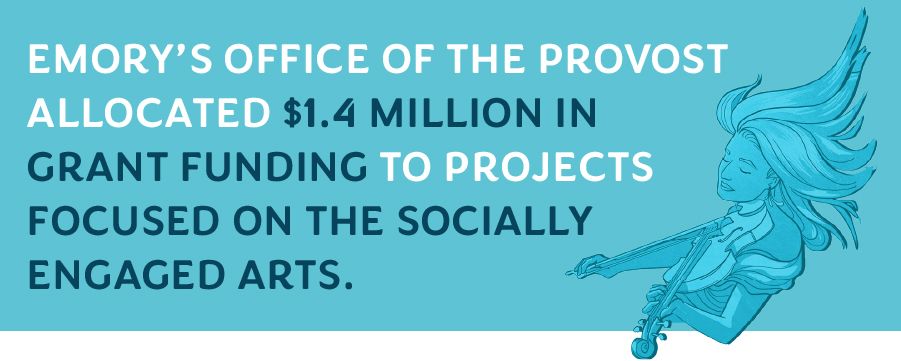
Perhaps worse, other critics have painted the humanities as worthless — literally. A major in drama or literature or French has become a punchline for someone who’ll never find a job, much less build a career — something only a practical study of STEM (science, technology, engineering and math) can provide.
Emory leaders disagree — and they’re not alone. A recent study from the National Center for Education Statistics shows that unemployment rates for humanities majors (3.6% for history, 3.7% for fine arts, comparative language and literature) are nearly identical to those of physical sciences majors (3.4%) and business majors (3.7%). In addition, the median annual salary for an English major is $53,000 compared to $56,000 for someone who majored in biology.
Furthermore, a survey conducted by the Association of American Colleges and Universities of 501 business executives and 500 hiring managers found that, regardless of the job, employers valued critical and analytical skills, oral and written communication, ethical judgment, the ability to work effectively in teams and real-world application of knowledge — all of which spring from a background in the humanities.

[An] education in the humanities teaches our students how to listen deeply, read critically and carefully, and analyze information and storytelling.
This sort of intellectual versatility and educational breadth is even more vital in a time when the average person changes jobs 12 times in their lifetime, and nearly 30% switch fields entirely. Even someone who stays in the same sector will typically have to adapt to rapid changes in technology and how they perform their jobs.
As Carla Freeman, director of Emory’s Fox Center for Humanistic Inquiry, puts it: The humanities impart more than a set of specific skills, they teach us how to think and learn.
“First and foremost, an education in the humanities teaches our students how to listen deeply, read carefully and critically, analyze information and relate our own experiences and historical moment to others across the world,” says Freeman, who is also Goodrich C. White Professor of Women’s, Gender and Sexuality Studies.
“Our students are anxious about their own professional futures and they are anxious about the future of the planet for all of humanity. Nothing prepares them better to change the world and forge meaningful relationships and flourish in life than a liberal arts education in which the humanities play a critical part,” Freeman notes.
For example, take business, a field that seems to touch almost every profession in some aspect, especially in this increasingly gig-based economy, where entrepreneurship flourishes. No matter what kind of business you’re trying to run — either your own or as an officer, manager or employee of a larger corporation — you must account for more than just debits, credits, costs and profit margins.
“Humanities teach us to stretch the time horizon; to learn from the past and look critically and analytically to the future,” says Wesley Longhofer, associate professor of organization and management at Emory’s Goizueta Business School and a member of the Arts and Humanistic Inquiry initiative’s faculty advisory committee. “Business is usually concerned with the short term, but a thoughtful, more humanistic look at the long term can provide greater value for stakeholders.”
For example, Longhofer suggests, a businessperson who has a keen knowledge of history might spot a trend they think their company should avoid. Their study of philosophy might give them special insights on consumer behavior. A broader education might give them the foresight to turn a critical eye to competing narratives and conclude that outside forces, such as a climate event or political shift, might impact the supply chain. Furthermore, those who have built solid communication skills might be able to best convey all this knowledge to their business leaders to save their company and shareholders a lot of time, money and trouble. (And if you’re a global organization, it never hurts to have studied a foreign language, either.)
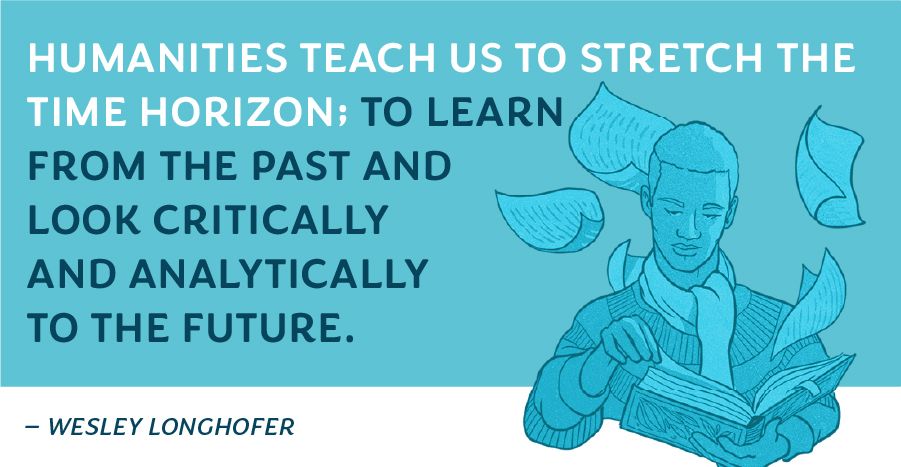
“For my students, it’s about communicating complex ideas and understanding moral and ethical challenges,” says Longhofer. “If you want to make a case to your boss about setting climate goals, you need more than just a business case. You also need to build support and a coalition. A lot of these skills are honed in the humanities.”
This isn’t just true in business. Bellamkonda is an engineer by trade, and he says there are myriad ways in which the humanities influence the design of everything from highway overpasses to smartphones. He uses a computer as a perfect example: At the base there is the machinery that does the calculation. But on top of that are layers of design, from the display to the font of the OS to the layout and feel of the keyboard.
“A good engineer is not just doing math problems in the abstract,” says Bellamkonda. “They are also considering how what they are designing will interact with the human being. Great design is capturing the right and left brain working together. There is a human part to everything that makes it meaningful. Therein lies the magic.”


GETTING IN TOUCH WITH HUMANITIES
Emory’s Initiative for Arts and Humanistic Inquiry is about more than just creating well-rounded students, workers and leaders. It’s also about making more engaged and better-informed citizens. The issues mentioned above — climate change, social justice, human rights, equality and political polarization — don’t just impact our jobs. They continually shape and color everything around us. An investment in a deeper understanding of humanity is a bet on making a richer world — and possibly saving it altogether.
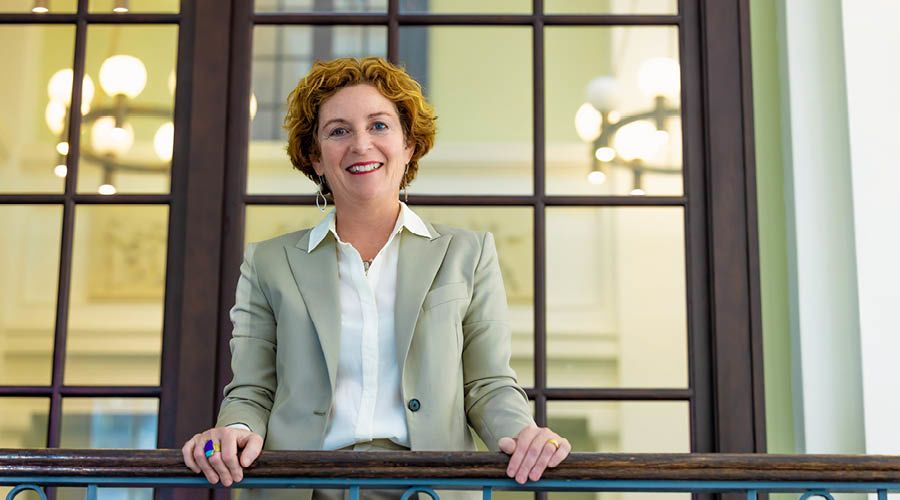
“When we’re bombarded by multiple sources, some better than others, presenting the state of the world in a variety of ways, we need to discern what is a legitimate source and how to make sense of competing narratives,” says Freeman. “Through the humanities, students are taught to gather information, narratives and stories, and to read ‘against the grain.’ They are taught to be able to attribute points of view to different speakers, gather information and arrive at a coherent argument, and communicate it in an accessible and clear way, whether that’s in person, on the page or through electronic media, no matter what their major is.”
Perhaps no issue is in more immediate need of humanistic consideration than the emerging technology of artificial intelligence (AI). The almighty algorithm has invaded nearly every facet of our daily lives and is evolving so quickly, we’ve had scant time as a society to consider the ethical implications and creative liberties at stake.
However, Emory is further ahead of the curve than most in taking a humanistic approach to the design and use of these cutting-edge technologies. Through its AI.Humanity initiative, a major effort launched in 2021, Emory faculty, staff and students across every academic area are collaboratively exploring not only how AI can be implemented, but also how it should — and shouldn’t — be used.
In many cases, the humanities provide the language to debate these matters in a productive way. For example, since so much of machine learning incorporates the creative output of artists — from music to literature and even to paintings — it’s worth considering the perspectives of those artists themselves.
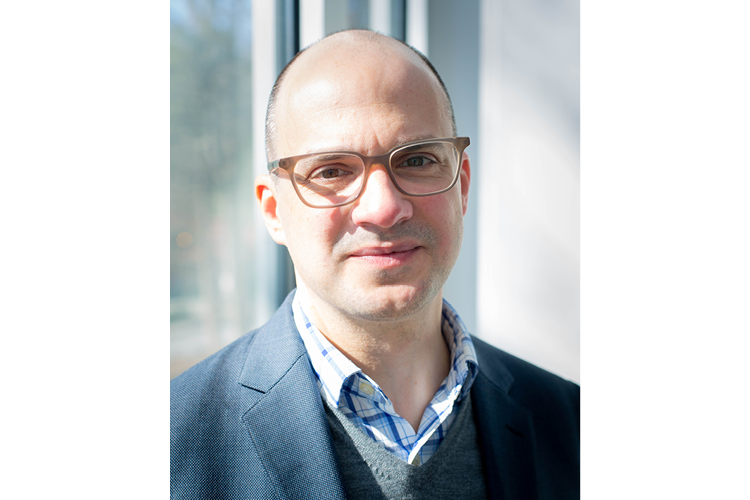
“Quotation in music has been around forever,” says Kevin Karnes, associate dean for the arts at Emory and a professor of music. “Even looking to the 1980s and 1990s and the sampling technology used then, you see that, to some extent, we’ve been here before. And when we’re creating with modern tools that anyone can access, we may not even know where the content comes from. It raises profound questions of what is an artistic work and who owns it?”
The fine arts themselves should not be overlooked when discussing social justice, human rights and other political hot topics. So often songs, documentaries, films, novels and paintings are voices of the voiceless, powerful ways of drawing public attention and empathy toward societal wrongs.
That’s why last year, Emory’s Office of the Provost allocated $1.4 million in grant funding to projects focused on the socially engaged arts, which included a feature film about a daughter whose mother was incarcerated and digital marketing tools for Central American coffee farmers telling their stories.
Karnes says that was the first step in a continuing push to bring programming to campus that will do much more than entertain students. “I hope it will enable us to bring in fantastic visual artists and musicians who are wrestling with these questions of the day,” he says. “This isn’t just hiring a pianist to play — it’s collectively enriching the campus as a whole.”
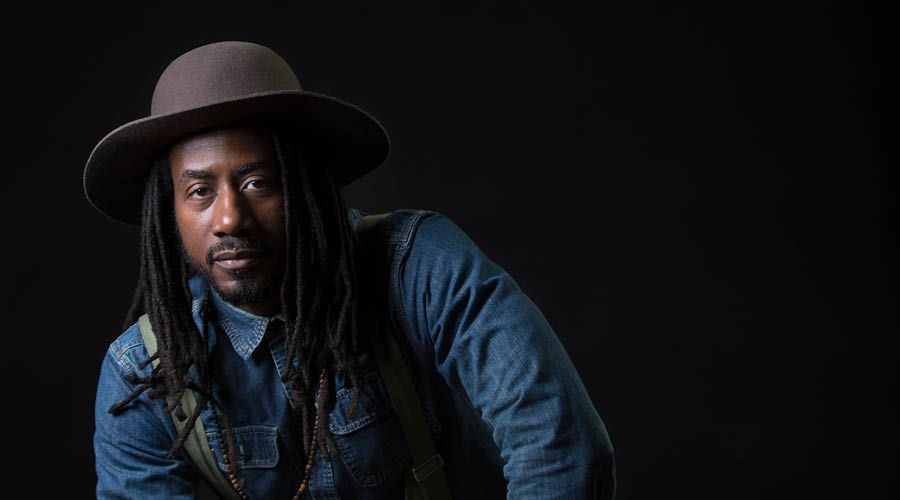
Alumnus and Emory arts pioneer Carlton Mackey 05T agrees. “I believe that art is a powerful force for change and a conduit for transformation,” says Mackey, former director of the Emory Ethics and the Arts program and co-founder of the Arts & Social Justice Fellows program.
He sees Emory’s redoubled focus on humanities and the arts coming at a truly poignant time. “Our world has drastically changed in the past few years with the pandemic, the racial reckoning, the polarizing nature of politics, the climate change, the wars,” he says. “Rooting the investment in the arts and arts programming is more critical than ever. Every tool that we can employ to heal these fractures will help create better understanding and bring people together.”
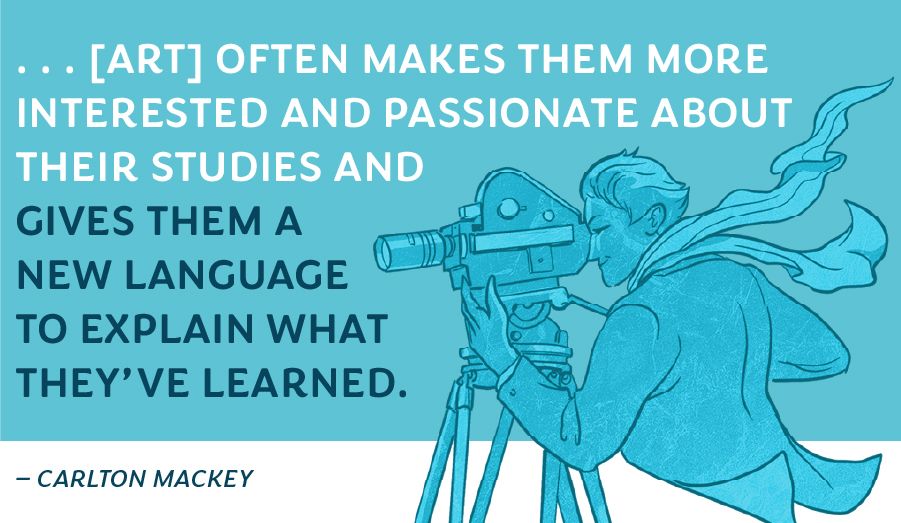
He’s witnessed it firsthand in classes co-taught by Emory’s Arts & Social Justice Fellows: “Art helps to concretize what students are learning,” says Mackey, who is now assistant director of community dialogue and engagement at the High Museum of Art. “Not only does it give them a different entry point and help them better understand their lessons, but also it often makes them more interested and passionate about their studies and gives them a new language to explain what they’ve learned.”


FINDING PURPOSE IN WORK AND LIFE
Obviously, Emory’s redoubled commitment to the humanities could have far-reaching implications, impacting the future of the world and its workforce. But maybe the most important thing that an increased emphasis on art, literature, history and philosophy can accomplish is more individualized and personal. After all, these are the things that shape the way we see our lives — and ourselves.
For instance, Goizueta Business School’s Longhofer says that studies show more and more people are looking for purpose in their work. They don’t feel seen or heard — how could they when they are treated like another data point?
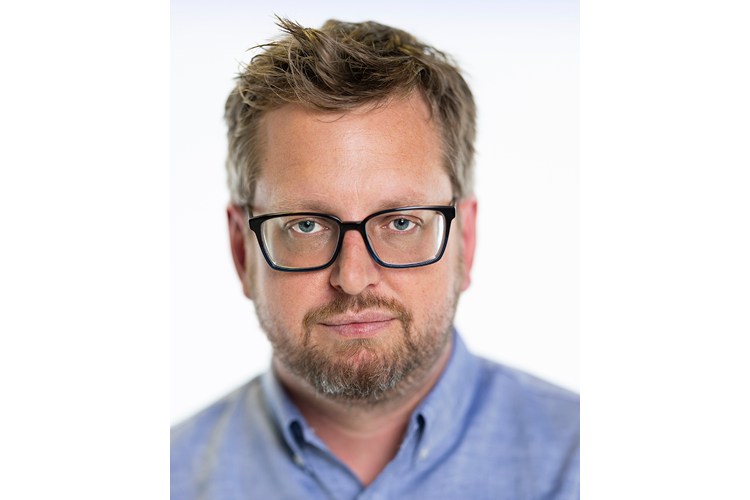
Longhofer suggests that, in addition to giving people the tools to communicate their wants and frustrations in their jobs, the humanities also provide a lens through which we might take a different look at our professions and find just the kind of meaning we’ve been looking for, or find another job that is more fulfilling.
Outside of the workplace, in a world filled with stress and uncertainty, the arts and humanities are the very things that provide our lives with meaning.
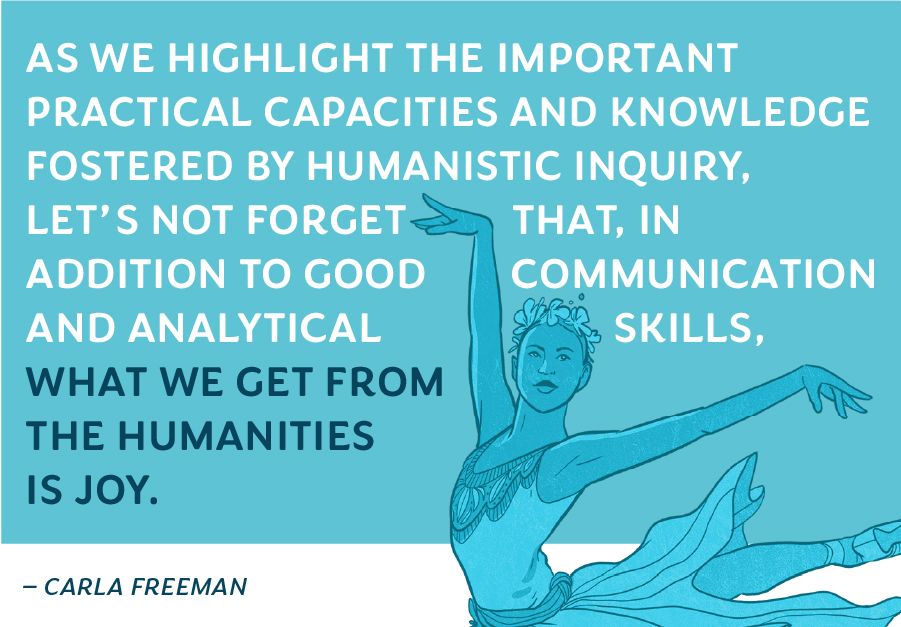
A good book, a catchy song, a previously unwritten history, a unique approach to philosophy are much more than escapes from reality — they’re new ways to approach it and experience it. In short, they are some of the things that make life worth living.
“It’s the pleasure of walking through an art gallery and just enjoying a perplexing image,” says Freeman. “It’s the beauty of a chamber concert, allowing emotions to unfold and respond to a sensory experience. It’s the novel’s capacity to immerse us in a character’s mind, in another time and place. It’s the fabric of a rich human life. As we highlight the important practical capacities and knowledge fostered by humanistic inquiry, let’s not forget that, in addition to good communication and analytical skills, what we get from the humanities is joy.”

Want to know more?
Please visit Emory Magazine, Emory News Center, and Emory University.





